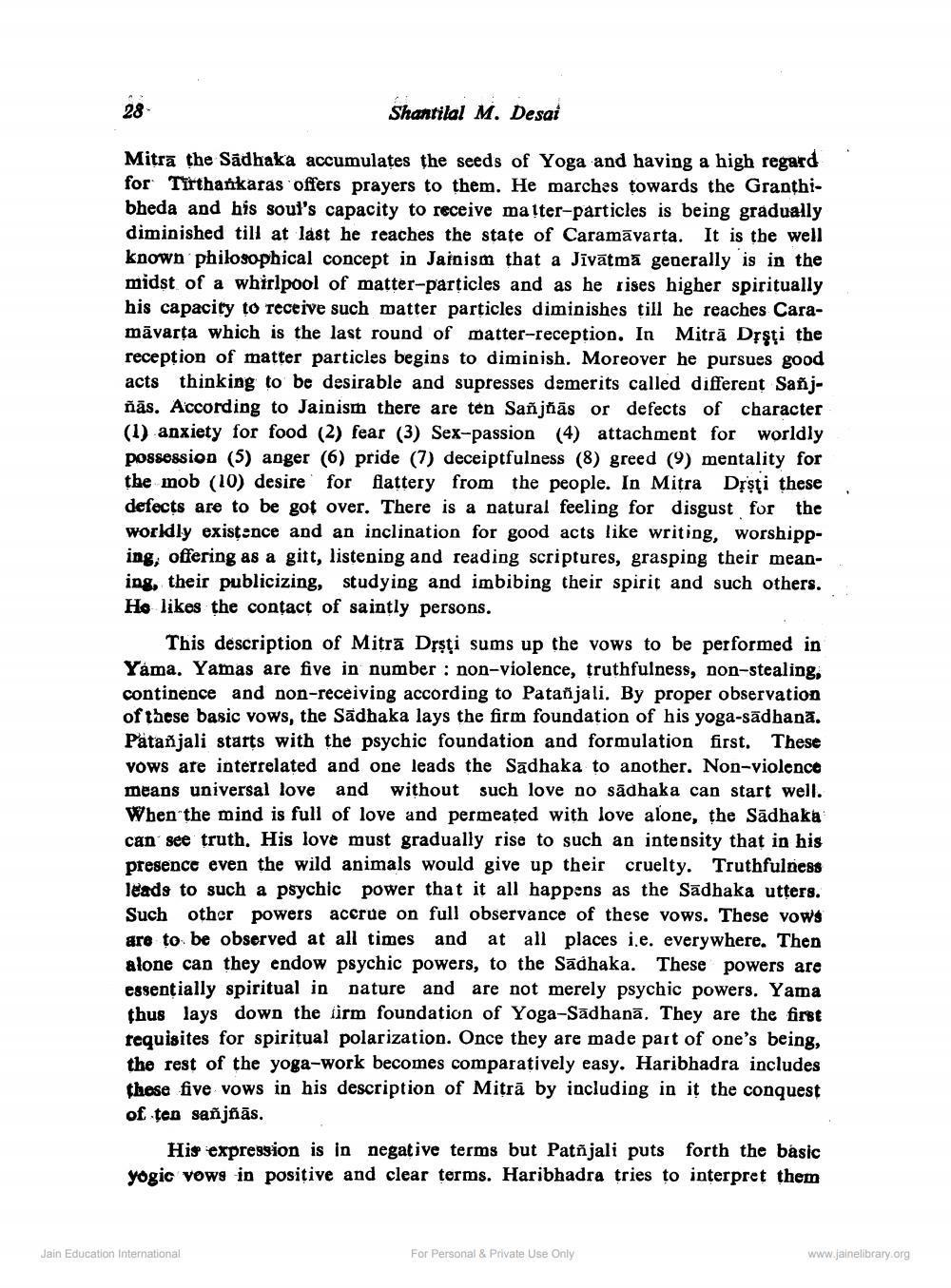________________
28
Shantilal M. Desai
Mitra the Sadhaka accumulates the seeds of Yoga and having a high regard for Tirthankaras offers prayers to them. He marches towards the Granthibheda and his soul's capacity to receive matter-particles is being gradually diminished till at last he reaches the state of Caramāvarta. It is the well known philosophical concept in Jainism that a Jivātmā generally is in the midst of a whirlpool of matter-particles and as he rises higher spiritually his capacity to receive such matter particles diminishes till he reaches Caramāvarta which is the last round of matter-reception. In Mitrā Drşți the reception of matter particles begins to diminish. Moreover he pursues good acts thinking to be desirable and supresses demerits called different Sanjñās. According to Jainism there are ten Sañjñās or defects of character (1) anxiety for food (2) fear (3) Sex-passion (4) attachment for worldly possession (5) anger (6) pride (7) deceiptfulness (8) greed (9) mentality for the mob (10) desire for flattery from the people. In Mitra Dršti these defects are to be got over. There is a natural feeling for disgust for the worldly existence and an inclination for good acts like writing, worshipping, offering as a gitt, listening and reading scriptures, grasping their mean-. ing, their publicizing, studying and imbibing their spirit and such others. Ho likes the contact of saintly persons.
This description of Mitrā Drsţi sums up the vows to be performed in Yáma. Yamas are five in number : non-violence, truthfulness, non-stealing, continence and non-receiving according to Patañjali. By proper observation of these basic vows, the Sādhaka lays the firm foundation of his yoga-sādbanā. Patañjali starts with the psychic foundation and formulation first. These vows are interrelated and one leads the Sadhaka to another. Non-violence means universal love and without such love no sādhaka can start well. When the mind is full of love and permeated with love alone, the Sādhaka can see truth. His love must gradually rise to such an intensity that in his presence even the wild animals would give up their cruelty. Truthfulness leads to such a psychic power that it all happens as the Sadhaka utters. Such other powers accrue on full observance of these vows. These vows are to be observed at all times and at all places i.e. everywhere. Then alone can they endow psychic powers, to the Sadhaka. These powers are essentially spiritual in nature and are not merely psychic powers. Yama thus lays down the firm foundation of Yoga-Sādhanā. They are the first requisites for spiritual polarization. Once they are made part of one's being, the rest of the yoga-work becomes comparatively easy. Haribhadra includes these five vows in his description of Mitrā by including in it the conquest of ten saññās.
His expression is in negative terms but Patñjali puts forth the basic Yogic vows in positive and clear terms. Haribhadra tries to interpret them
Jain Education International
For Personal & Private Use Only
www.jainelibrary.org




